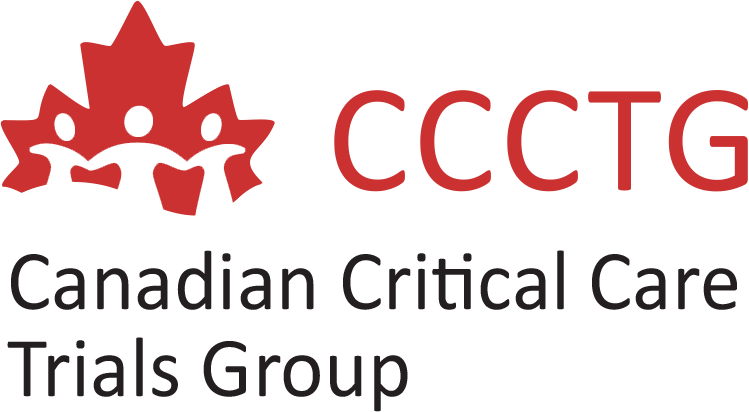The BALANCE Program
Bloodstream infections are a common and serious problem, affecting 15% of critically ill patients and resulting in a three-fold increased mortality rate. Early treatment with effective antibiotics is essential to improve the outcome of these patients, but the optimal duration of treatment has not been studied. In this void of evidence, excessive durations of antibiotic therapy are contributing to avoidable adverse drug events, Clostridium difficile infection, and increases in antibiotic resistance.
CONTACT US if you are interested in joining this program of research.

The Bacteremia Antibiotic Length Actually Needed for Clinical Effectiveness (BALANCE) Research Program seeks to define the optimal treatment duration for patients with bloodstream infection. The goal is to maximize the benefits while minimizing the harms of these treatments, including antibiotic resistance, C. difficile, and other drug-related side effects.
Our Primary Research Question and Hypothesis:
Among hospitalized patients with bloodstream infection, is shorter duration antibiotic treatment (7 days) associated with non-inferior mortality rates (at 90 days) to those achieved with longer duration antibiotic treatment (14 days)? We hypothesize that survival rates will be non-inferior with shorter course treatment.
Our Secondary Hypotheses:
We hypothesize that shorter treatment will also be associated with non-inferior secondary clinical outcomes including: hospital and intensive care unit (ICU) mortality, relapse rates of bacteremia, hospital and ICU length of stay, mechanical ventilation and vasopressor duration. We hypothesize that shorter course treatment will be associated with more antibiotic-free days, lower risk of C. difficile infection, lower risk of antibiotic allergy and adverse events, and lower risk of colonization/infection with antibiotic-resistant organisms.
ANTIBIOTIC OVERUSE IS A GLOBAL HEALTH THREAT
The World Health Organization, U.S. Centers for Disease Control, Association of Medical Microbiology and Infectious Diseases (AMMI) Canada, and Canadian Federal Health Minister have all declared antimicrobial resistance a global threat to health, based on rapidly increasing resistance rates and declining new antimicrobial drug development.
PROLONGED TREATMENT DURATIONS ARE THE GREATEST CONTRIBUTOR TO ANTIBIOTIC OVERUSE
Up to 30-50% of antibiotic use is inappropriate, and excessive durations of antibiotic treatment are the greatest contributor to inappropriate use. Unnecessarily prolonged antibiotic use is contributing to preventable complications, C. difficile infections, and antimicrobial resistance among patients, and preventable costs for the healthcare system. Large numbers of studies have confirmed that shorter duration treatment (≤ 7 days) is as effective as longer duration treatment for a range of infections, including lung, skin and soft tissue, intra-abdominal, and urinary tract infections.
EVIDENCE IS LACKING FOR THE OPTIMAL TREATMENT DURATION FOR BLOODSTREAM INFECTIONS
Bloodstream infections are among the most common and serious infections in critically ill patients, affecting 50,000 Canadians per year, and more than 600,000 patients per year in North America, and 1,200,000 per year in Europe. Yet, the optimal duration of treatment for these patients has not been studied.
OVERALL GOAL OF THE BALANCE RESEARCH PROGRAM
The Bacteremia Antibiotic Length Actually Needed for Clinical Effectiveness (BALANCE). Research Program seeks to define the optimal treatment duration for patients with bloodstream infection. The goal is to maximize the benefits while minimizing the harms of these treatments, including antibiotic resistance, C. difficile, and other drug-related side effects.
SYSTEMATIC REVIEW OF THE MEDICAL LITERATURE
We systematically reviewed the medical literature, and found no prior dedicated trials of shorter versus longer antibiotic treatment duration for non-newborn patients with bloodstream infection. We did find two dozen prior studies of more than 7000 patients treated with shorter versus longer antibiotic courses for conditions commonly complicated by bloodstream infection (lung infection, urine infection, skin and soft tissue infection, intra-abdominal infection). Very few of these studies reported on the outcomes of the subgroup of patients that had bloodstream infection. In these small subgroups, shorter and longer duration treatment had similar cure rates.
→ VIEW ABSTRACT
NATIONAL PRACTICE SURVEY OF CANADIAN INFECTIOUS DISEASES AND CRITICAL CARE PHYSICIANS
We conducted a national survey of Canadian Infectious Diseases and Critical Care Physicians, and learned that 14 days is the most commonly recommended treatment duration for patients with bloodstream infection, but that there are major variations in recommendations, and general agreement that a trial of 7 versus 14 days of treatment is needed.
→ VIEW ABSTRACT
CROSS-CANADA MULTICENTRE OBSERVATIONAL STUDY
We studied actual treatment practices among more than 1200 patients with bloodstream infection across ICUs in 14 hospitals, in 10 Canadian cities and 6 Provinces. This study confirmed that longer treatment durations are being used, irrespective of the bug or the source of the bloodstream infection.
→ VIEW ABSTRACT
BALANCE PILOT RANDOMIZED CONTROLLED TRIAL
In a pilot randomized controlled trial of 7 versus 14 days of antibiotic treatment for bloodstream infection we have confirmed the feasibility of this trial design. Our recruitment rates and protocol adherence rates have exceeded expectations, and we are ready now to embark on the main trial.
BALANCE WARD PILOT RANDOMIZED CONTROLLED TRIAL
BALANCE MAIN RANDOMIZED CONTROLLED TRIAL
The BALANCE Main trial randomized hospitalized patients with bloodstream infection to 7 versus 14 days of antibiotics. The trial included 3626 patients, of which 2/3 were enrolled in participating Canadian sites within the Canadian Critical Care Trials Group, and 1/3 were enrolled in collaborating sites in United States, Australia, New Zealand (ANZICS), Israel and Saudi Arabia. The primary aim is to determine whether shorter duration antibiotic treatment (7 days) for patients with bloodstream infection is associated with non-inferior survival rates (at 90 days) to those achieved with longer duration treatment (14 days). The secondary aims are to determine whether shorter course treatment is associated with non-inferior secondary clinical outcomes (hospital mortality, ICU mortality, relapse rates of bacteremia, ICU length of stay, hospital length of stay, mechanical ventilation duration, vasopressor duration) while leading to improvements in antibiotic-free days, C. difficile infection, antibiotic allergy and adverse events, and colonization/infection with antibiotic-resistant organisms.
BALANCE completed recruitment in May 2023.
BALANCE +
BALANCE+ is a perpetual platform trial to answer multiple questions that are important for patients with the most common kind of bloodstream infections – caused by “Gram negative” bacteria. This trial provides a platform upon which to answer three questions looking at best ways to ‘de-escalate’ and ‘step-down’ antibiotic treatment (going from a broad to more specific antibiotic). We will answer the question about what to do when the infection is caused by bacteria on an intravenous catheter – should we remove and replace the catheter or just treat with antibiotics. We will also answer some key antibiotic selection controversies for some difficult to treat pathogens. As each question is answered, optimal therapies will be adopted into usual care, and new questions will be introduced into the platform of the trial. The evidence generated by BALANCE+ will improve cures for this vulnerable patient population while decreasing potential harms from using too many antibiotics for too long.
PROGRAM FIGURE
Implementing knowledge gained from BALANCE will not require new equipment, technology or advanced training of personnel. Instead, implementing shorter course treatment, if proven non-inferior, would be a simple intervention that could be widely implemented with cost-savings rather than cost increases. The result would be rapid large-scale reductions in antibiotic days of treatment across ICUs in Canada and across the globe.
Reductions in C. difficile infections, and antibiotic resistant organisms would then follow. If shorter course treatment is sufficient for critically ill patients with bloodstream infections, then it might also be sufficient for less ill populations with bloodstream infections. Therefore, the BALANCE trial findings could lead to very broad global reductions in antimicrobial use and pressure.
| Title | Download | Publish date |
| BALANCE UTI Sub-Study | Download | March 25, 2021 |
| Procalcitonin and Endothelial Biomarkers Sub-Study | Download | February 11, 2020 |
| Microbiome Sub-Study | Download | July 19, 2016 |
Implementing knowledge gained from BALANCE will not require new equipment, technology or advanced training of personnel. Instead, implementing shorter course treatment, if proven non-inferior, would be a simple intervention that could be widely implemented with cost-savings rather than cost increases. The result would be rapid large-scale reductions in antibiotic days of treatment across ICUs in Canada and across the globe. Reductions in C. difficile infections, and antibiotic resistant organisms would then follow. If shorter course treatment is sufficient for critically ill patients with bloodstream infections, then it might also be sufficient for less ill populations with bloodstream infections. Therefore, the BALANCE trial findings could lead to very broad global reductions in antimicrobial use and pressure.
The involvement of the knowledge users and leaders in the Canadian Critical Care Trials Group (CCCTG) will lead to rapid national knowledge dissemination, since its members include over 350 clinicians and researchers who work in ICUs across Canada at all major teaching hospitals and many community hospitals. A major mandate of the CCCTG is translating knowledge into practice and advancing the science of Knowledge Translation (KT) in the critically ill.
BALANCE
| Title | Download | Publish Date |
| BALANCE Statistical Analysis Plan Appendix | Download | August 21, 2023 |
| Consent Form | Download | October 29, 2019 |
| Case Report Form Instructions | Download | October 29, 2019 |
| Electronic Case Report Form | Download | October 29, 2019 |
| BALANCE Participating Sites | Download | June 6, 2018 |
| Effect of Inadequate Initial Empiric Antimicrobial Treatment on Mortality in Critically Ill Patients with Bloodstream Infections: A Multi-Centre Retrospective Cohort Study | Download | July 19, 2016 |
| Pathogens and Antimicrobial Susceptibility Profiles | Download | February 21, 2017 |
| Trial Flow Diagram | Download | February 19, 2016 |
| BALANCE Trial Management Structure | Download | February 19, 2016 |
| Selected Definitions-R | Download | February 19, 2016 |
| Pediatric Collaborators | Download | February 19, 2016 |
| International Collaborators | Download | February 19, 2016 |
| Knowledge Translation | Download | February 19, 2016 |
| Justification for Studying Fixed Durations of Treatment | Download | February 19, 2016 |
| Justification for Studying Bacteremia Bloodstream Infection | Download | February 19, 2016 |
BALANCE+
| Title | Download | Publish Date |
| BALANCE+ Protocol | Download | April 25, 2023 |
| BALANCE+ Study Synopsis | Download | September 7, 2023 |
Congratulations to Royal Victoria McGill for enrolling the 2000th BALANCE patient | March 25, 2021

Australian National Health and Medical Research Council Awarded | February 10, 2020
The New Zealand Health Research Council Awarded | February 10, 2020
CIHR Project Grant | February 19, 2016
INNOVATION AWARD | February 19, 2016
More Info
Dr. Nick Daneman
Dr. Rob Fowler
Thanks to all Participating Centres and collaborators for engaging in this research program!
Thanks to the CCCTG for endorsing this research project.


